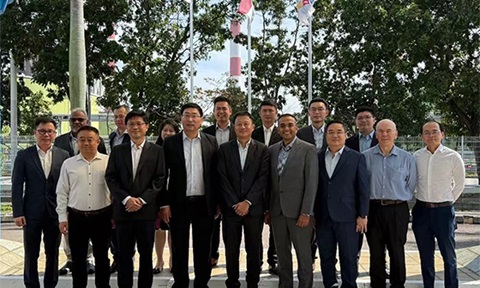Award of MTC IRG/YIRG project - Assistant Professor Yan Ran
Congratulation to Assistant Professor Yan Ran on the award of MTC IRG/YIRG for her project Decarbonisation of harbour tugboats using big data and artificial intelligence: Operational, tactical, and strategic measures

About Manufacturing, Trade and Connectivity (MTC) Individual Research Grant (IRG)/Young Investigator Research Grant (YIRG)
Project Write-up
This project aims to reduce GHG emissions from harbour tugboats operated in the Port of Singapore by state-of-the-art techniques, including big data analysis, artificial intelligence, data-driven mathematical modelling, and techno-economic analysis (TEA). Harbour tugboat energy demand and emissions are first predicted. Then, harbour tugboat daily scheduling, in-port assignment guidelines, and TEA of potential renewable energies as operational, tactical, and strategic GHG emission reduction measures are proposed.
This project contributes to fulfilling Maritime Singapore Decarbonisation Blueprint where domestic harbour craft is a focus area. It also strengthens Singapore’s value position as a leading global hub port and international sustainable Maritime Centre.
This project makes the very first attempt to decarbonise harbour tugboats from methodological and practical aspects through accurately predicting harbour tugboats’ energy demands and emissions and developing operational, tactical, and strategic decarbonisation measures informed by AI using practical data. Compared to cargo and passenger ships, decarbonisation of harbour tugboats draws much less attention from academia. By building on current ongoing projects with domestic industrial collaborators, this project innovatively adopts DL models considering temporal and spatial features of high-frequency fuel consumption data collected onboard to increase accuracy.
To take a step further, as a pioneer, it develops a daily harbour tugboat scheduling optimisation model with GHG minimisation as objective and fuel consumption rates predicted by AI, and the solution approach is accelerated by ML. The above innovations significantly distinguish the proposed project from exiting related studies. Moreover, this project is the very first to optimise Tugboat Assignment Guidelines currently adopted by MPA, aiming to maximise tugboat utilisation and minimise GHG emissions. It is also the very first to apply TEA to rank renewable energy options on harbour tugboats in terms of technical feasibility, sustainable efficiency, and cost efficiency, adding on current analysis based on LCA.







